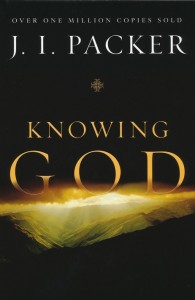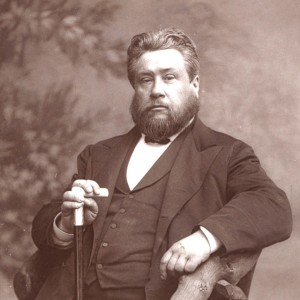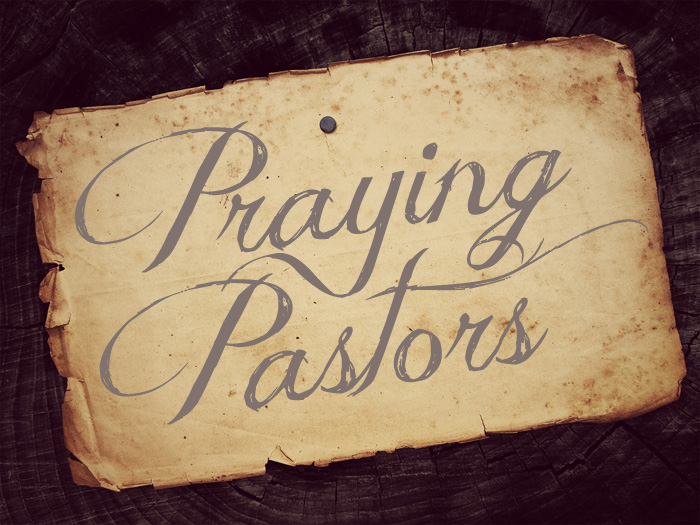Eternal life springs from death, glory from ignominy, and blessedness from a curse. We are healed by stripes, quickened by death, purchased by blood, crowned by a cross, advanced to the highest honor by the lowest humility, comforted by sorrows, glorified by disgrace, absolved by condemnation, and made rich by poverty. Thus the wisdom of God shines with radiant brightness in the work of redemption. – Thomas Boston
Category Archives: Quotes
Of all things that are to be known this is most evident, that God is to be feared, to be reverenced, served, and worshiped; this is so the beginning of knowledge that those know nothing who do not know this. – Matthew Henry
The Epitome of a Christian’s Happiness
Isaac Ambrose opens his work Looking Unto Jesus with some magisterial language indeed:
“As Christ is more excellent than all the world, so this sight transcends all other sights; it is the epitome of a Christian’s happiness, the quintessence of evangelical duties, Looking unto Jesus. . . . This, indeed, is the glad tidings, the gospel, the gospel privilege, and our gospel-duty, Looking unto Jesus.”
The Proper Study of a Christian
 JI Packer’s Knowing God is deservedly called a classic. But you might be surprised to know that the words of a young twenty year old serve as Packer’s launching pad into doxological theology.
JI Packer’s Knowing God is deservedly called a classic. But you might be surprised to know that the words of a young twenty year old serve as Packer’s launching pad into doxological theology.
That young twenty year old is Charles Haddon Spurgeon. On January 7, 1855, the minister of New Park Street Chapel, Southwark, England, opened his morning sermon as follows:
It has been said by someone that “the proper study of mankind is man.” I will not oppose the idea, but I believe it is equally true that the proper study of God’s elect is God; the proper study of a Christian is the Godhead. The highest science, the loftiest speculation, the mightiest philosophy, which can ever engage the attention of a child of God, is the name, the nature, the person, the work, the doings, and the existence of the great God whom he calls his Father.
There is something exceedingly improving to the mind in a contemplation of the Divinity. It is a subject so vast, that all our thoughts are lost in its immensity; so deep, that our pride is drowned in its infinity. Other subjects we can compass and grapple with; in them we feel a kind of self-content, and go our way with the thought, “Behold I am wise.” But when we come to this master science, finding that our plumbline cannot sound its depth, and that our eagle eye cannot see its height, we turn away with the thought that vain man would be wise, but he is like a wild ass’s colt; and with solemn exclamation, “I am but of yesterday, and know nothing.” No subject of contemplation will tend more to humble the mind, than thoughts of God….
But while the subject humbles the mind, it also expands it. He who often thinks of God, will have a larger mind than the man who simply plods around this narrow globe…. The most excellent study for expanding the soul, is the science of Christ, and Him crucified, and the knowledge of the Godhead in the glorious Trinity. Nothing will so enlarge the intellect, nothing so magnify the whole soul of man, as a devout, earnest, continued investigation of the great subject of the Deity.
And, whilst humbling and expanding, this subject is eminently consolatory. Oh, there is, in contemplating Christ, a balm for every wound; in musing on the Father, there is a quietus for every grief; and in the influence of the Holy Ghost, there is a balsam for every sore. Would you lose your sorrow? Would you drown your cares? Then go, plunge yourself in the Godhead’s deepest sea; be lost in his immensity; and you shall come forth as from a couch of rest, refreshed and invigorated. I know nothing which can so comfort the soul; so calm the swelling billows of sorrow and grief; so speak peace to the winds of trial, as a devout musing upon the subject of the Godhead. It is to that subject that I invite you this morning.
I was reminded of these words earlier this week and was freshly humbled. How amazing and glorious our God is! To mature a man to a point where he can utter such profound wisdom at twenty can only come from God’s gracious work. May all His shepherds find their souls similarly enlarged through “devout, earnest, continued investigation of the great subject of the Deity.”
A Burning Light
In his incredible lecture on “The Preacher’s Private Prayer” Spurgeon remarked,
It is said of Alleine, ‘He poured out his very heart in prayer and preaching. His supplications and his exhortations were so affectionate, so full of holy zeal, life and vigour, that they quite overcame his hearers; he melted over them, so that he thawed and mollified, and sometimes dissolved the hardest hearts.’
– Spurgeon, Lectures to My Students, 45.
Follow Them to Their Family
 In his excellent work on a holy life, Gospel Conversation, Jeremiah Burroughs writes,
In his excellent work on a holy life, Gospel Conversation, Jeremiah Burroughs writes,
There are some who make profession of religion indeed, and, if you come to them before other company, their conversation seems to be very fair and square. But just follow them to their families and see what they do there. Will you see their conversation to be holy as becomes the gospel of Jesus Christ?
– Burroughs, Gospel Conversation: Conduct Worthy of the Gospel, 23.
You Need to Read
 “Paul had a few books, which were left perhaps wrapped up in the cloak, and Timothy was to be careful to bring them. Even an apostle must read.
“Paul had a few books, which were left perhaps wrapped up in the cloak, and Timothy was to be careful to bring them. Even an apostle must read.
“Some of our self-sufficient brethren have thought a minister who reads books and studies his sermon must be a very deplorable specimen of a preacher. A man who goes up into the pulpit, professes to take his text on the spot and talks any quantity of nonsense is the idol of many. If he will speak without premeditation, or pretend to do so, and never produce what they call a dish of dead man’s brain – ah! that is the preacher. How rebuked they are by the apostle!
He is inspired, yet he wants books!
He has been preaching for thirty years, yet he wants books!
He has seen the Lord, yet he wants books!
He has a wider experience than most men, yet he wants books!
He had been caught up into the very heaven and had heard things which it was unlawful for a man to utter, yet he wants books!
He had written the major part of the New Testament, yet he wants books!
The apostle says to Timothy, and so he says to every preacher, “Give attendance to reading.” The one who never reads will never be read. He who never quotes will never be quoted. He who will not use the thoughts of other men’s brains proves that he has no brains of his own.
“Brethren, what is true of pastors is true of all our people – you need to read!”
– Charles Haddon Spurgeon
Salvation is No Short Story
In considering the historical development of God’s kingdom, John Frame writes,
Why [God] chose to stretch out the drama of salvation over so long a time is a mystery. The length of time is related to other mysteries in Scripture, such as the problem of evil. We would not cry, ‘How long O LORD?’ (Pss. 6:3, 13:1, 80:4; 90:13; Hab. 1:2; Zech. 1:12; Rev. 6:10), if God had determined to complete his purposes in an instant, and the sting of pain and suffering would be much less if God were to abbreviate his story to a few decades. But God’s decision is clear: that the history of redemption will take millenia, leaving space for dramatic movements, ups and downs, twists and turns, longing and astonishments. Salvation is to be a great epic, not a short story. God will glorify himself, not by measuring his kingdom in time spans appropriate to human kings, but by revealing himself as ‘King of the ages’ (Rev. 15:2 NIV).
– Frame, Systematic Theology, 88.
The Hardest Study
In volume one of his collected works the forgotten Puritan George Swinnock offers several hopes for his ministry. His ninth hope is that he would be a diligent preacher of God’s word, and he understands the necessity of prayer to the task:
Luther saith, He the prayeth hard, studieth hard. Lord, let all my sermons, as dew be heaven-born, that they may drop down upon my people like rain upon the mown grass. Let prayer be the key to open the mysteries of Christ to me, and let prayer be the turning of the key, to lock them up safe within me. Let prayer open and shut all my books, form and write, begin and conclude every sermon. Ah, now should he pray both for his preaching, and before he preacheth, who, by every sermon, preacheth his beloved neighbors into eternal burning, or eternal pleasures!
– George Swinnock, The Works of George Swinnock Vol:1, 324-325.
At What are You Better?

Do you not sense, with me the severity of the problem? Granted that most of us know some individuals who are remarkable prayer warriors, is it not nevertheless true that by and large we are better at organizing than agonizing? Better at administering than interceding? Better at fellowship than fasting? Better at entertainment than worship? Better at theological articulation than spiritual adoration? Better – God help us! – a preaching than praying?
– DA Carson, A Call to Spiritual Reformation: Priorities from Paul and His Prayers, 17.

